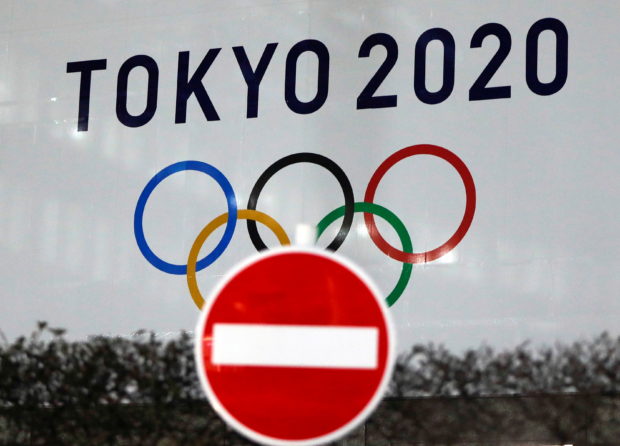
The logo of Tokyo 2020 Olympic Games that have been postponed to 2021 due to the coronavirus disease (COVID-19) outbreak, is seen through a traffic sign at Tokyo Metropolitan Government Office building in Tokyo, Japan January 22, 2021. REUTERS FILE PHOTO
TOKYO — Emergency medicine experts warn first responders at the Tokyo Olympics could easily confuse heatstroke and coronavirus patients because the illnesses bear similar symptoms.
While Games organizers have moved the marathon and race-walk events to the cooler northern city of Sapporo, most events are taking place in Tokyo between July 23 and Aug. 8, the peak of the city’s hot and humid summer.
“Medical resources in the hot summer are so limited, even in the normal summer without the Olympic Games,” said Shoji Yokobori, chair of the Nippon Medical School Hospital’s department of emergency and critical care medicine in Tokyo.
Shinji Nakahara, a public health expert at Kanagawa University of Human Services, said medical teams could mistake a COVID-19 patient for somebody suffering from heatstroke as both illnesses have symptoms of high temperature, dehydration and fatigue.
“It can cause a messy situation in medical care stations at each venue,” said Nakahara.
Tokyo’s emergency health system has already had a taste of the combination of heatstroke and COVID-19. So-called difficult-to-transfer cases – where a patient being transported by ambulance is turned down by multiple hospitals – more than doubled last summer from a year earlier.
Toshiro Muto, CEO of the Tokyo 2020 Organizing Committee, has said officials are working on plans to deal with heatstroke, considered a major health concern alongside COVID-19.
In a study of heatstroke management during the pandemic, Yokobori found that around four people diagnosed with severe heatstroke among 1,000 cases later tested positive for COVID-19.
While the ratio was nominal, the result was a “shock”, Yokobori said, due to risks over hospital-acquired infections.
Compounding the problem, wearing masks, a key prevention measure against the coronavirus, can raise body temperatures in the heat of the summer.
That puts not only spectators but emergency responders at risk, Yokobori said, calling for organizers to bar spectators from the Games.
Tokyo 2020 have already blocked spectators from overseas but are yet to announce whether locals will be able to attend.
“When we take care of heatstroke patients, we also have to protect ourselves with heavy protective gear, because we cannot separate COVID-19 with heatstroke,” Yokobori said. “That makes us so stressed.”
For more news about the novel coronavirus click here.
What you need to know about Coronavirus.
For more information on COVID-19, call the DOH Hotline: (02) 86517800 local 1149/1150.
The Inquirer Foundation supports our healthcare frontliners and is still accepting cash donations to be deposited at Banco de Oro (BDO) current account #007960018860 or donate through PayMaya using this link .